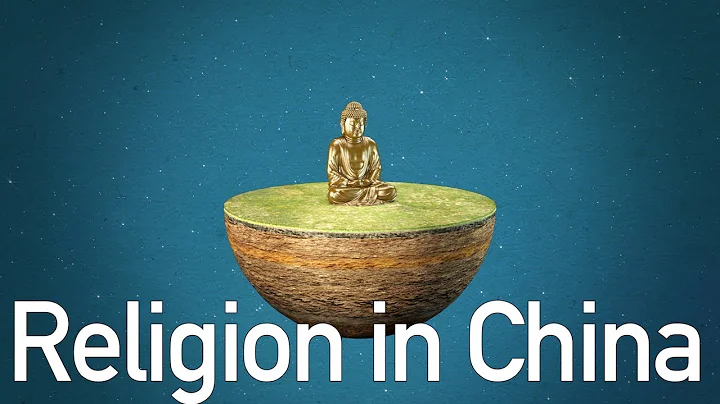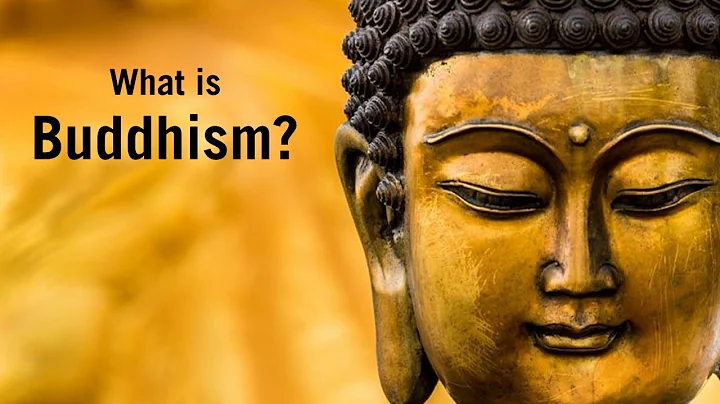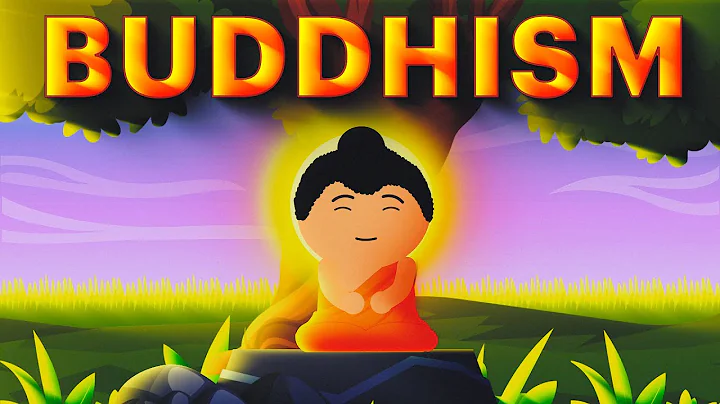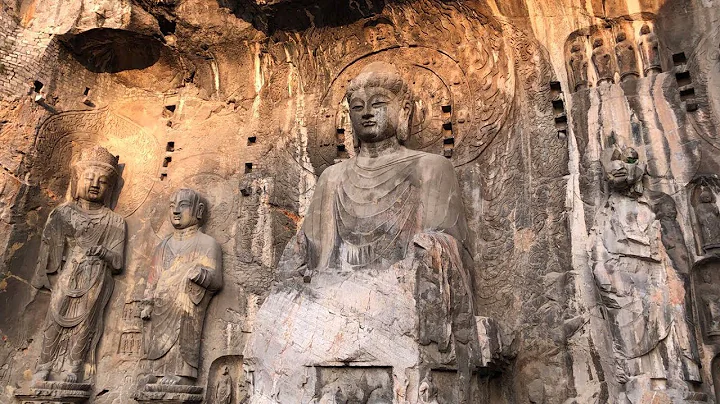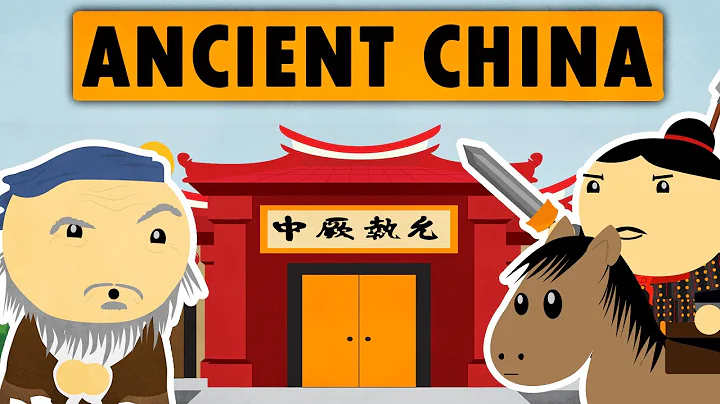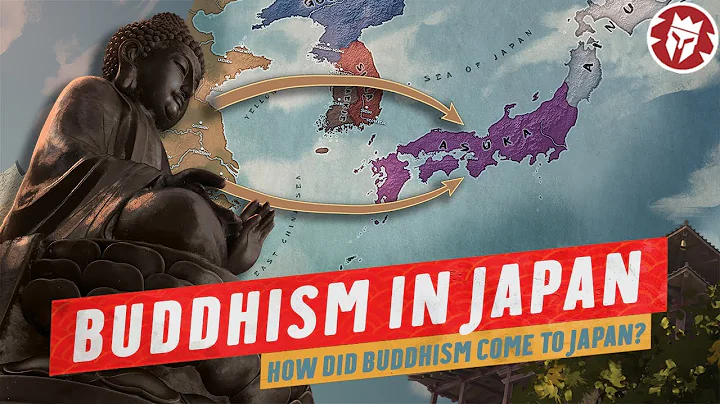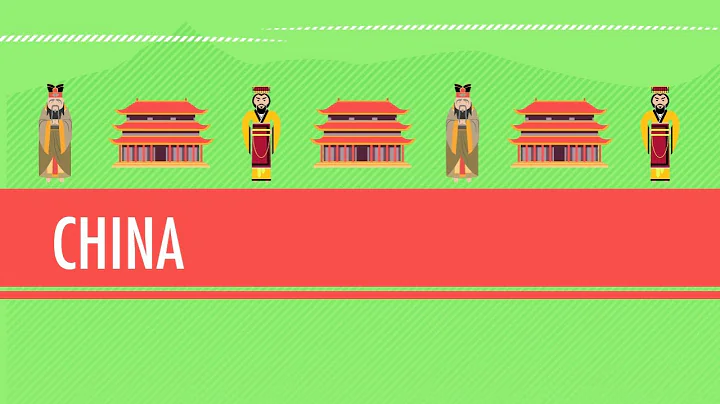
Buddhism had been introduced into China as early as the first century AD. With the development of more than ten centuries, Buddhism had completely taken root in China. By the Qing Dynasty period, not only the common people believed in Buddhism in large numbers, but also the royal nobles and even the emperor were no exception. .
Once the emperor of Shunzhi asked the eminent monk How many generations of Qing Dynasty can be passed down, the eminent monk only answered fourteen words. All the emperors of the Qing Dynasty failed to understand the meaning of these fourteen words. It was not until the Qing Dynasty was about to fall that the last emperor realized it. So what are these fourteen characters? Let us look for answers in the article with questions.

Emperor Shunzhi became associated with Buddha
Many people always mistakenly believe that the first emperor of the Qing Dynasty was Huang Taiji . Although Huang Taiji played an important role in establishing the Qing Dynasty, he did not fulfill the emperor's destiny and defeated the Ming Dynasty. After going to , he died of illness when he was about to enter the customs. The death of Huang Taiji set off a struggle for the throne. In the end, Dorgon succeeded in taking the throne, but he did not become the emperor himself, but managed national affairs through the puppet emperor Shunzhi.
Therefore, Emperor Shunzhi was ostensibly the first emperor of the Qing Dynasty, but he had no real power at the beginning and was just a product of the struggle for imperial power. Fortunately, Emperor Shunzhi was young when he succeeded to the throne and did not understand what power was. However, as he grew older, Shunzhi became more knowledgeable and gradually became dissatisfied with Dorgon. However, most of the power in the DPRK was concentrated in the hands of Dorgon. Although he was dissatisfied, there was nothing he could do.

So Emperor Shunzhi pinned his inner frustration on Buddhism . According to historical records, Emperor Shunzhi often went to temples to burn incense and worship Buddha. He also reused eminent monks, Yulin Tongxiu Zen Master was one of them.
After the death of Dorgon, the fourteen-year-old Emperor Shunzhi finally took charge. With the power in his hands, he was devoted to Buddhism and became a Buddhist believer. He often visited Haihui Temple to communicate with Zen masters Zen Tao, and later invited Zen master Yulin Tong. Xiu went to the palace to teach Buddhism. He called himself a student and respected Yulin Tongxiu very much.

As a result, there were even rumors among the people that Emperor Shunzhi became a monk and became a monk. However, this rumor was obviously not true. Emperor Shunzhi was the king of a country, so it was impossible for him to become a monk. Even if he wanted to, all the civil and military officials in the court would definitely do it. stop. In addition to this rumor, there is also a story among the people that Emperor Shunzhi discussed the future of the Qing Dynasty with Zen Master Yulin Tongxiu.
Wisdom Zen Master Yulin Tongxiu
Yulin Tongxiu, Jiangyin person , has been talented since childhood, and his learning ability far exceeds that of his peers. When he was fifteen years old, he became obsessed with Buddhism when he first came into contact with "Monk's Quotations". From then on, he determined to embark on the path of Zen meditation and Buddhism. Four years later, he was finally recognized for his achievements in learning and successfully entered the Linji Temple became a monk.

In the blink of an eye, another four years later, Yulin Tongxiu's attainments in Buddhism were getting higher and higher, and his reputation was naturally growing. In the 16th year of Shunzhi, he was summoned by the court to go to Wanpu Hall to preach. It was his first time with Emperor Shunzhi. Meet. What he didn't expect was that this meeting would be an important turning point in his life.
Although the six roots of Yulin Tongxiu are pure, it is still a physical body. Living in the world of mortals, it is natural to avoid the seven emotions and six desires, and there is still a certain need for material things. During the teaching process in the Hall of Ten Thousand Buddhas, Emperor Shunzhi recognized the Buddhist theory very much and believed that it resonated with his heart. So the following year, he rewarded Zen Master Tongxiu of Yulin and gave him the title of "Zen Master Dajue Puji". Zen Master Xiu also lived a superior life.

During the course of his studies, Emperor Shunzhi would consult Zen Master Yulin Tongxiu if he encountered something he did not understand. Once, Emperor Shunzhi asked such a question: "How many generations can the Qing Dynasty be passed down?" Although Emperor Shunzhi was still on the throne Soon, but he also did a lot of practical things for the people of the Qing Dynasty, so he was also very concerned about the future of the Qing Dynasty.
After Zen Master Yulin Tongxiu thought for a while, he only answered fourteen words. These fourteen words were: "Ten emperors and nine emperors were imprisoned, and one was in Youzhou " .After Emperor Shunzhi heard this, he was puzzled. He continued to ask Zen Master Yulin Tongxiu, but the Zen Master seemed unwilling to answer directly, and just told him that the secret of heaven should not be leaked.

On the premise of respecting Zen Master Yulin, Emperor Shunzhi did not inquire deeply. He spent the rest of his life thinking about the meaning of this sentence. Until he died of smallpox, he was still at a loss, so he regarded this sentence as a "family motto." It has been passed down, and emperors of all dynasties have thought about its meaning, but even Emperor Kangxi, who created the prosperous age of Kangxi and Qianlong, was helpless about it.
Time is like the flowing water of Yellow River . The emperors of the Qing Dynasty passed it down from generation to generation. Soon they came to the end of the Qing Dynasty. Just when they thought that the meaning of this sentence would disappear forever in the long river of history with the demise of the Qing Dynasty, the last emperor Puyi finally figured out the reason.

Puyi’s insights
Puyi is the great-grandson of Emperor Daoguang and the last emperor of the Qing Dynasty. After the outbreak of the Revolution of 1911, Puyi was driven out of the palace, which declared the complete end of the Qing Dynasty's rule of more than three hundred years. From heaven to hell, Puyi was deeply moved by the huge contrast. He couldn't help but think of this "family motto". Combining it with his own life, he finally understood the meaning of this sentence.
"Ten Emperors and Nine Emperors in Prison" refers to the Qing Dynasty starting from the first emperor Shunzhi to ending with Puyi. There were ten emperors in total. "Nine Emperors in Prison" refers to the fact that nine of the emperors stayed there for the rest of their lives. In the palace, although the palace is large, it is just a palace building after all. Living in it for a lifetime feels like a prison cell for prisoners.

"There is another person in Youzhou", doesn't this sentence refer to myself? "Youzhou" in ancient times refers to the area now located near Guang'anmen in downtown Beijing. Puyi moved here to live after leaving the palace, and he was the remaining emperor.
It turns out that the wise Zen master Yulin Tongxiu was not in vain. When Emperor Shunzhi asked that question, he sincerely calculated and answered sincerely. However, the secret must not be leaked, and he did not dare to tell it in plain words, so as not to attract punishment from heaven and lead to death. To avoid disaster, he had no choice but to make a fourteen-character mantra, hoping to warn the emperor of the Qing Dynasty. But on this point, he obviously miscalculated. Puyi didn't understand this until the Qing Dynasty was destroyed. It was too late.

Conclusion
To sum up, those fourteen words revealed the future of the Qing Dynasty. Zen Master Yulin Tongxiu told Emperor Shunzhi, probably because of Emperor Shunzhi’s courtesy to him, and wanted Emperor Shunzhi to understand and make arrangements early. , allowing the Qing Dynasty to maintain long-term peace and stability, can be regarded as a small repayment for Emperor Shunzhi.
However, fate is not up to anyone. Emperors of all dynasties failed to understand the meaning of this sentence. Moreover, perhaps even if a certain emperor in the Qing Dynasty could wake up, he could not change history, because the real history can be calculated from the time of Zen Master Yulin Tongxiu. Destined. The
pictures come from the Internet. If there is any infringement, please contact us to delete it!
